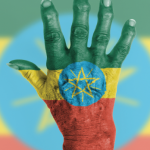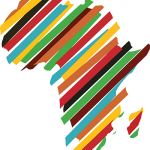Members discuss medical treatment for their disease as well. Many people cannot afford the lupus drugs that are available. Sometimes there may not be any drugs available at all. For example, a number of patients were using the antimalaria drug hydroxychloroquine (Plaquenil) until the drug was no longer available in their country, Argwings-Kodhek says.
The group also discusses practical measures that members can take to improve their lupus symptoms. “Fatigue is such a big problem with lupus,” Argwings-Kodhek says. “Trying to exercise will help reduce fatigue.” In Kenya, this often means walking.
By training even a small number of workers, well-informed knowledge about diseases such as lupus can be shared with a larger group throughout the country and East Africa.
Another consideration is sun exposure. “The sun is very hot in Kenya and you can’t keep out of it 100%, but you can at least cover your body,” she says.
Members also talk of the importance of writing down questions that they have about their disease and listening to their bodies. Members of the group are overcoming misconceptions that the disease is a weakness and are becoming bolder about stating that they have lupus, Argwings-Kodhek notes.
Funds to Expand Education
The support group, which is now part of the Lupus Foundation of Kenya, is supported by the International League of Associations for Rheumatology (ILAR). “We’d been funded to develop rheumatology education in East Africa. The idea was to convocate rheumatologists and aid in education and awareness,” says Ines Colmegna, MD, assistant professor of medicine in the division of rheumatology at McGill University Health Center in Montreal, Canada. Dr. Colmegna recently visited the Kenyan support group.
To help with the education efforts, ILAR has developed an eight-week course to be offered at the University of Nairobi. The course is meant for medical students, graduate students, residents, and others to help expand their understanding of rheumatology. “We need to bridge the gap and educate community health workers,” Dr. Colmegna says. The ACR is also involved in the ongoing rheumatology training in East Africa.
Online Resources
Learn more about Sharon Argwings-Kodhek’s lupus support group and other efforts to expand rheumatology education in East Africa at www.arthritisafrica.org or via the Facebook page Lupus Foundation of Kenya.
In addition to education for health workers, Dr. Colmegna says that tailoring patient education specifically for life and culture in East Africa is necessary. For example, education about exercise should focus most heavily on walking, which many people in these countries already do.


